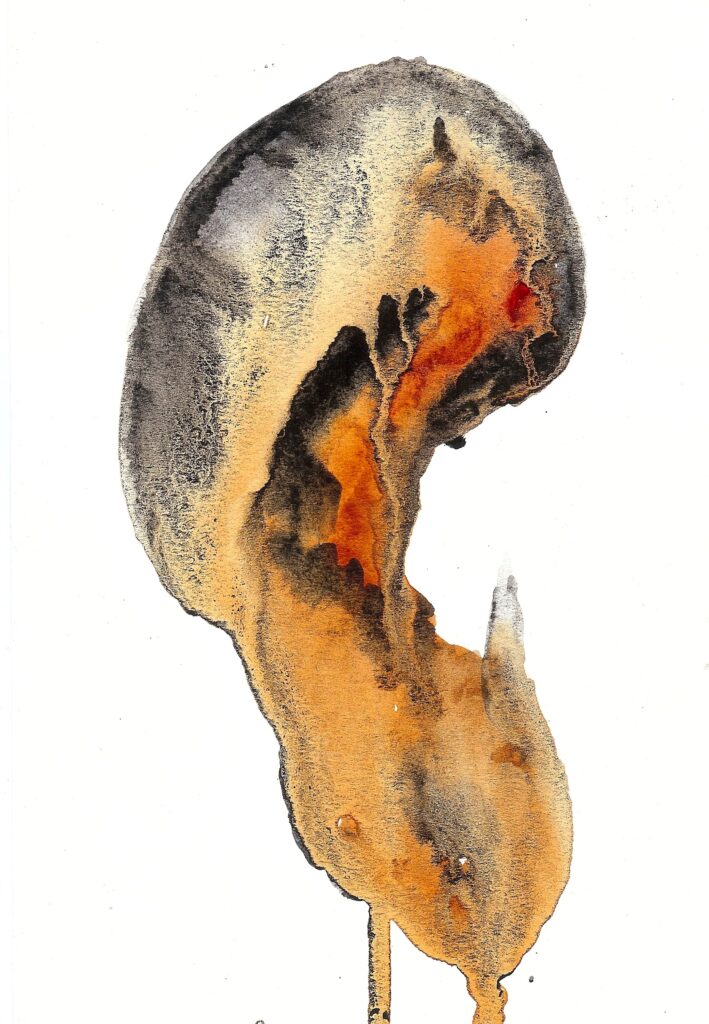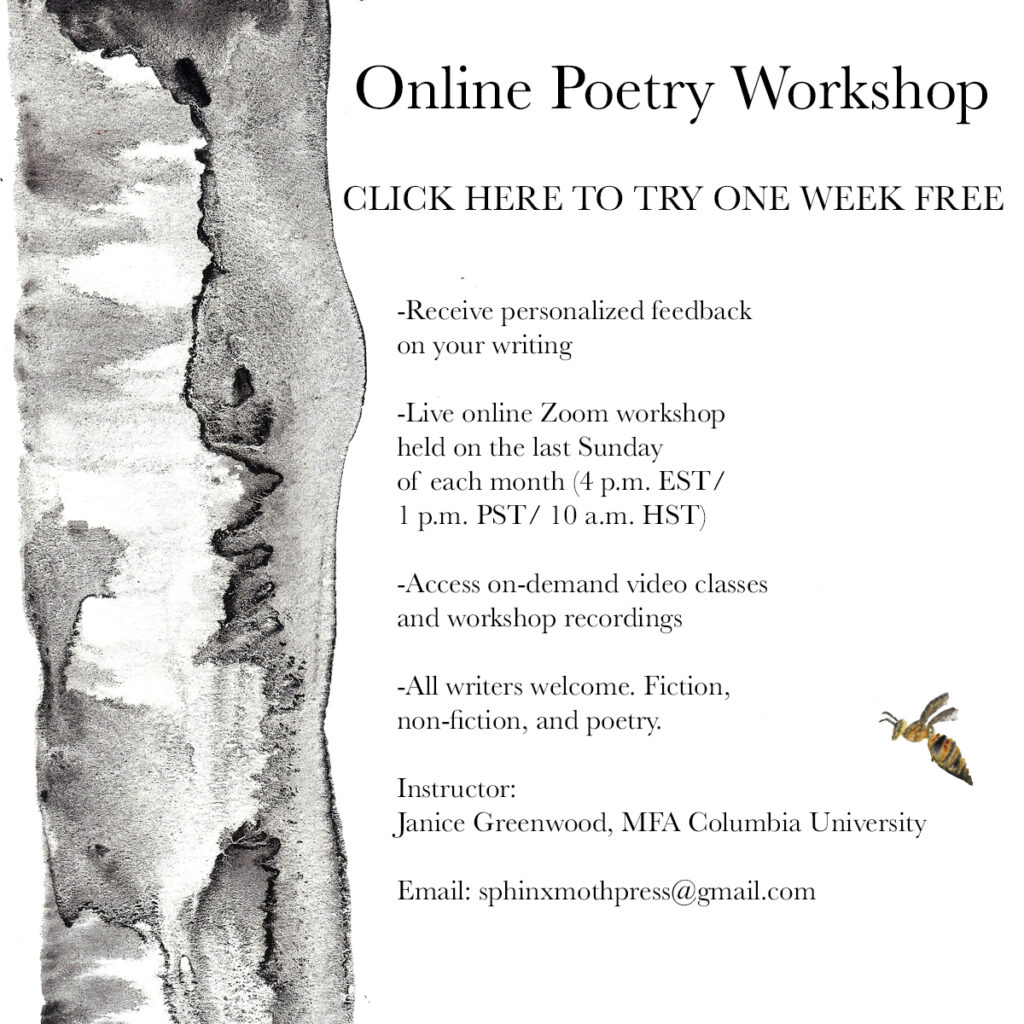Documentary, memoir, and poetry, if it is to become art, must leave behind mere stenographic replication of the facts. Memoirists write memoirs not merely because they had an experience, but rather, because they have made meaning of the experience, and have meaning to offer. Cheryl Strayed, in her website, notes that she wrote her memoir Wild about hiking the Pacific Crest trail, not because “I took a hike.” She clarifies that she wrote Wild “because I’m a writer. By which I mean until I had something to say about the experience, I didn’t have any reason to write about it.” A writer doesn’t tell an interesting story merely because something interesting happened. Rather, a writer tells an interesting story because something happened and the writer has something interesting to say about it.
In the Q&A following the screening of his film, Lessons of Darkness, Werner Herzog gave a speech which was later published in Arion: A Journal of Humanities and the Classics called “On the Absolute, the Sublime, and Ecstatic Truth.” His thesis is this: accountants are the only ones interested in factual truth. Artists are interested in something else, a deeper truth, the “enemy of the merely factual.”
Truth making is the role of the story teller. And truth making has power.
And yet, the making of meaning from the facts can have a dangerous dimension when wielded by those in power and by power structures. We see how the facts can be distorted (and often outright falsified) when filtered through the abomination that is Fox News and the Trump Administration. Those in power can mold the facts to their liking. In the hands of institutions, fiction-making becomes propaganda, or it becomes a means by which the powerful dispossess the less powerful.
This abuse of the factual is seen most clearly in native land rights battles, where the very medium through which truth is conveyed is brought into question. The western insistence on the written document (a title to hold land) is problematic in the face of oral histories and oral cultures. In his essay, “On the Absolute, the Sublime, and Ecstatic Truth,” Werner Herzog tells of how he secured native land rights for the Machiguengas people during his filming of Fitzcarraldo. Though the people had occupied the land for time immemorial, various companies, including oil interests, had been looking to seize the land. When the tribe tried to claim legal title to the land, Herzog explains the elders encountered two problems: (1) they held no legal document or title and officials told them that their claim was supported only by “hearsay” and (2) no one had surveyed the land.
Herzog had the land surveyed, but getting the legal authorities to recognize the claim on the basis of oral history was more difficult. Herzog found that in Anglo Saxon law, hearsay, while generally inadmissible, was not absolutely inadmissible. He pointed out other land claim cases where hearsay was used to determine land rights. And so, by legitimizing the oral stories of the Machiguengas, the legal authorities recognized the Machiguengas as the official holders of the land. One still sees colonial entitlement at play here, though, because the Machiguengas were still forced to seek the written title, which ultimately is the instrument of power in a culture that privileges the material over the oral.
Truth is granted its legitimacy through the power structures that adopt it. The truth telling and fiction-making capacity of the artist is always vulnerable to corruption or adoption by these structures. The artist and storyteller must always ask herself—to what ends is the story being employed?
Herzog questions the nature of reality. What is reality? Social realities can be obscured, blurred, and distorted through television, doctored photographs, and social media. Our interactions with each other are increasingly mediated through technologies that erase and obscure direct communication.
Fake news floods the world, presenting an alternative version of the facts. For some, the facts are up for interpretation. The factual is filtered through the lens of perception—or distorted by it. The role of interpreting the facts has been weaponized. Look at the truth through your chosen lens and you can bend it to your will.
And so, there is indeed a danger in the creative capacity to wield the facts to ecstatic ends–for, just as they can be used for good, they can also be used for evil, for manipulation, for empire, and subjugation.
Herzog notes: “Of course, we can’t disregard the factual; it has normative power.” When we are talking about the realms of science, journalism, politics, and the law, normative power is what lends these institutions their validity and legitimacy. But to put the realms of art, film, and poetry in the same classification is to do a disservice to these forms of human expression. Herzog notes: “In the fine arts, in music, literature, and cinema, it is possible to reach a deeper stratum of truth—a poetic, ecstatic truth, which is mysterious and can only be grasped with effort; one attains it through vision, style, and craft.”
The painter who merely paints what he sees is not an artist. The writer who merely records what she has experienced is a journalist, not a poet. The filmmaker who merely strives to replicate experience as it happened, is not telling a story, because life, as it happens, is not a story. The story is the meaning we bring to it. Herzog reminds us, after all, “it’s not fakery when Michelangelo’s Pieta portrays Jesus as a 33 year old man, and his mother, the mother of God, as a 17 year old.”
This is the triumph of humanity over nature, the triumph of art over nature, the triumph of the human spirit over the merely factual. But perhaps triumph isn’t the right word. Perhaps residence within is better.

In the ancient Greek, the truth is that which is “not hidden.” Truth is therefore itself the process of discovery, the joy and ecstasy of discovery. I have written about Werner Herzog’s attention to discovery when writing about his film, “Fireball: Visitors from Darker Worlds.” Herzog’s truth comes from the pleasure of the discovered. Discovery, by its very essence, requires that the thing discovered be not known before. This paradox, of both the known residing within the unknown, is what makes Herzog’s films so fascinating. Herzog uses the word “disclosure.” It is an excellent choice.
And so, ecstatic truth must be a kind of disclosure. We see it in Herzog’s movies, when he draws the camera up close to his subject’s face. We see it when we encounter art, real art, for the first time. We see it when we encounter nature, and reside within it.

About the Writer
Janice Greenwood is a writer, surfer, and poet. She holds an M.F.A. in poetry and creative writing from Columbia University.
